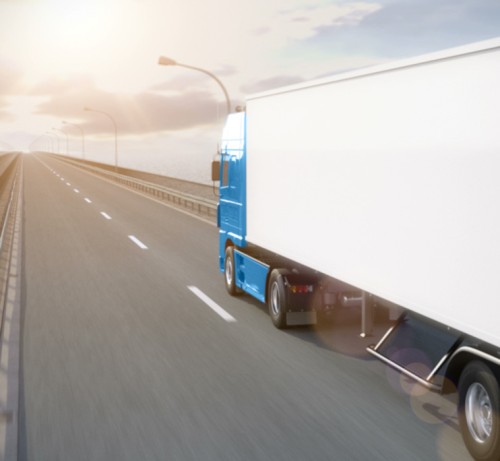Hydrogen requirement in energy transition within logistics
Geplaatst op 01-04-2023
Within the private sector, a huge shift in mobility is currently taking place. In particular, the transition from diesel, gas and petrol-driven cars to electric transport is proceeding at lightning speed. We also see some of this development at companies. Think, for instance, of Picnic's electrically powered E-Worker delivery van or the electric vehicles of DHL, Amazon and PostNL. Large trucks face a challenge when it comes to electric driving: charging times are long, a battery is heavy and expensive while the range is also limited and temperature-dependent. Moreover, filling up the electricity grid is already causing problems in installing charging stations at many locations in the Netherlands. Hydrogen is seen by many as the solution for the transport industry where deployability of vehicles is important and idling is also a large part of the Total Cost of Ownership (TCO) of a vehicle. The Purchase Subsidy Zero-Emission Trucks (AanZET) supports entrepreneurs with the transition of their fleet with green hydrogen as energy source.
Replacing fossil fuel with green hydrogen
- There are several reasons for advocating replacing fossil fuels in trucks and buses with clean green fuel:
Climate change: Burning fossil fuels emits greenhouse gases, such as carbon dioxide (CO2), which contribute to climate change. Trucks and buses are a major source of greenhouse gas emissions, so replacing fossil fuels a clean energy source like hydrogen will help reduce greenhouse gas emissions and thus slow climate change. - Air quality: Diesel-powered transport vehicles also emit pollutants such as nitrogen oxides (NOx), particulate matter and sulphur dioxide. These substances can lead to health problems such as respiratory diseases and cardiovascular diseases. The use of hydrogen can therefore help improve air quality and thus make an important contribution to people's health.
- Sustainability: Fossil fuels are finite and will eventually run out. By switching to a clean energy source, such as hydrogen, we can use available resources in a sustainable way and reduce dependence on fossil fuels.
In short, replacing fossil fuels with green hydrogen in trucks and other large transport will help slow climate change, improve air quality and reduce dependence on finite resources.
AanZET subsidy for entrepreneurs
For entrepreneurs, the AanZET subsidy is an attractive scheme for replacing fossil-driven vehicles. The Purchase Subsidy Scheme Zero-Emission Trucks is for companies and non-profit organisations wishing to buy or financially lease a new, fully emission-free (zero-emission) truck.
For this purpose, €30,000,000 is available from 4 April and the subsidy application can be submitted until 29 December 12:00 am (2023). Last year, when the AanZET grant opened, the budget was quickly depleted. The advice is to apply in time if you want to make use of the scheme to purchase a hydrogen electric truck.
Stricter laws and regulations
In the coming years, laws and regulations in the transport sector will become stricter regarding fossil fuel.
There are already several laws and regulations aimed at reducing emissions from trucks running on fossil fuels. In the future, more measures will be taken to encourage the use of clean energy sources, such as the use of hydrogen, and reduce emissions from trucks.
Some examples of existing and future laws and regulations include:
- CO2 emissions standards
The standards are gradually being tightened and truck manufacturers must comply with the emission limits set in order to place their vehicles on the European market. Various regulations are being drawn up from Europe to accelerate the transition to zero emission trucks based on CO2 emission standards. For more information on the European scheme see: Reducing CO₂ emissions from heavy-duty vehicles. - Environmental zones
Several cities in the Netherlands have established environmental zones in which certain trucks with high emissions are banned. From 2025, the requirements for freight transport and other forms of urban logistics will become stricter. For more information on zero emission zones see: Towards ZES. - Incentives
Governments can provide various incentives to promote the use of clean energy sources in trucks. Examples include subsidies for the purchase of electric trucks and charging infrastructure (such as the AanZET Subsidy), or tax breaks for companies investing in clean energy such as hydrogen (including the MIA and Vamil). In addition, the truck levy will be introduced in 2026 where zero emission trucks such as hydrogen electric trucks will pay up to 75% less per year than fossil fuel combustion engine trucks (for more information see: Truck Levy Programme).
More hydrogen refuelling stations and more hydrogen trucks
In short, there are already several laws and regulations aimed at reducing emissions from fossil-fuel trucks. More measures are expected to be taken in the future to encourage the use of clean energy sources such as hydrogen. Currently, hydrogen can be refuelled at about 15 filling stations in the Netherlands. This number will increase rapidly in the coming years.
Cheap hydrogen in North Holland
The province of North Holland signed a hydrogen covenant with major energy suppliers and energy users in 2022 to encourage the development of hydrogen (for more information see: 8 hydrogen refuelling stations in North Holland - Province of North Holland).
One of the projects being taken up by the NHN Development Company, the New Energy Coalition and the business community is the Duwaal project. In this project, HYGRO will produce and supply green hydrogen to filling stations in North Holland, enough for 50 to 80 hydrogen trucks in the region. The first filling station within this project is from AVIA Marees in Wieringerwerf. Moreover, HYGRO aims for the cost of hydrogen to be comparable to diesel. In this project, that already seems feasible in the short term.
Almost all big and small brands of truck manufacturers have hydrogen trucks in development like, for example, Volvo Trucks and Daimler Trucks. H2X Global has developed a hydrogen electric truck that is already available this year (see picture above). Mobihy is H2X's representative in the Netherlands.



